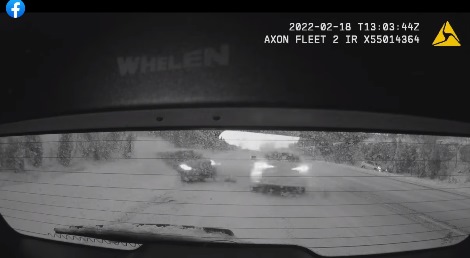by Noah Taborda, Kansas Reflector
Topeka — The Kansas Secretary of State’s Office and voting rights advocates are urging Senate lawmakers to reject a bill banning the use of drop boxes for advance ballots except under certain conditions.
With the pandemic raging, many counties chose to add additional drop boxes to increase ease of voting and maintain social distancing. These estimated 180 additional boxes are the target of many who fear the election could be vulnerable to interference from fraudsters.
Senate Bill 445 would prohibit the use of these boxes unless they are located inside the building of a county election office or satellite voting location. An employee must continuously observe the drop box during times that it is available to the public.
Clay Barker, general counsel for the secretary of state, said the proposed law was redundant as counties already supervise many boxes and that the law would hinder the state if more drop-off points were needed during a disaster.
“If I was doing ballot harvesting, which is now illegal in Kansas, I would not go near a drop box,” Barker said. “What we would like, if the committee wanted to move on drop boxes, is the direct authority to regulate them because right now, they are unregulated in Kansas.”
While they are unregulated, the Secretary of State’s Office has federal guidelines and its own policies helping direct counties on best practices. Policies include the requirement for a bipartisan group to pick up the ballots, the level of the sidewalk, and clearing brush away.
Still, the surveillance applied to these boxes is not uniform, leading to concerns among some legislators.
In 2020, Kansas saw the number of drop boxes increase by more than 180 in large part because of the secretary of state’s offer to purchase two additional boxes for every county. Seventy-nine counties requested two boxes and 12 requested one. Johnson County requested seven. At least eight counties purchased even more drop boxes on their own using federal grants.
Sen. Richard Hilderbrand, R-Galena, pointed out that while the desire may be for all counties to always have a man or a camera on these boxes, this is not the case everywhere. Camera security also cannot prevent the destruction of ballots in real time, only evidence to convict, he said.
“You keep saying these are the most secure because of surveillance but let’s just say they do have surveillance cameras on there, how often are they checked?” Hilderbrand said. “How often do people get to look at them? I can go in and drop 10 ballots off, and if it’s a low resolution, you don’t know if it’s 10 or I could drop 20 off.”
Aileen Berquist, community engagement manager for the American Civil Liberties Union of Kansas, countered these concerns by reminding legislators there is no indication in Kansas that ballot drop boxes have or will be the subject of tampering. Reports from other states do not consider the verification process in Kansas, she said.
“We see this bill as a solution to a problem that is being manufactured,” Berquist said. “Ballot boxes provide much needed flexibility to voters in a busy modern world and that flexibility has been even more crucial to our civic engagement during a worldwide pandemic.”
Kansans must first request a ballot where they enter their driver’s license number and their signature, later checked by the election office, and then it must be taken to a box that is usually under surveillance, said Davis Hammet, of the election reform organization Loud Light. He said the vague writing of the bill could open the state up to litigation.
“There’s a whole chain of custody process for these ballots,” Hammet said. “The drop boxes might be actually one of the most secure ways to do this.”
Kansas Reflector stories, www.kansasreflector.com, may be republished online or in print under Creative Commons license CC BY-NC-ND 4.0.
See more at https://kansasreflector.com/2022/02/18/kansas-election-official-urges-legislators-to-avoid-complicating-advance-ballot-drop-off/

